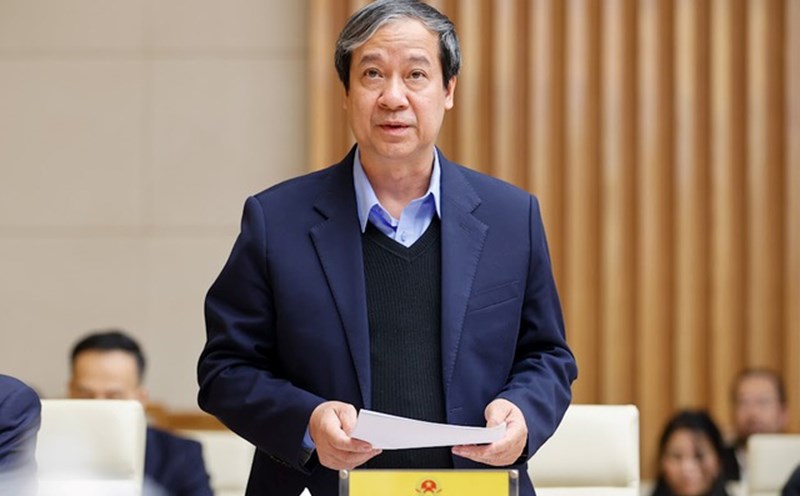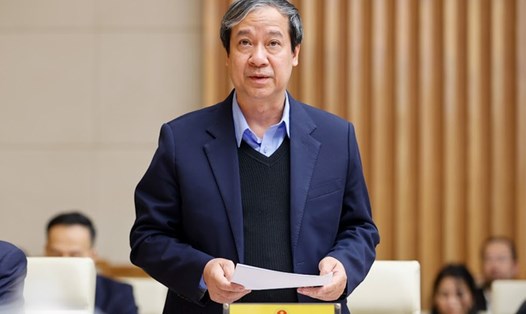Thirst for digital human resources
According to the General Statistics Office, in the fourth quarter of 2024, the rate of trained workers with degrees and certificates nationwide was 28.6%. In 2024, the labor force that has been trained with degrees and certificates is estimated at 28.3%.
Currently, the whole country has nearly 38 million workers who have not been trained, while the Government's goals through the labor market development support program until 2030 are the proportion of training with degrees and certificates of 35-40%. This figure shows a significant challenge in improving the technical qualifications for workers, especially in developing programs and policies to train human resources to meet the goals of digital economic development in the coming time.
A survey by UOB Bank Vietnam shows that in 2024, businesses will increase their digital transformation budgets by 10-25%. Of which, the areas with the most spending on digital transformation are trade, wholesale (88%); technology, communications and telecommunications (87%).
Mr. Ha Anh Tuan - CEO of Vinalink Media JSC - said that Vietnam is seriously lacking high-level human resources in the fields of chips, information technology...; even a shortage of mid-level and primary human resources in machine and software operation positions...
"One of the reasons is that the current training program has not yet caught up with the rapid development trend of information technology in the world," said Mr. Tuan.
According to Mr. Tran Minh Tuan - Director of the Department of Digital Economy and Society (Ministry of Science and Technology), Vietnam has many advantages to develop the digital economy, such as favorable geographical location - located near China, the world's industrial center - making it easy to access technology, machinery and raw materials. Investment capital from large technology corporations is continuously pouring into Vietnam, turning our country into a "second home" for many global enterprises.
However, Vietnam still faces a major challenge in terms of human resources. Currently, IT human resources only meet about 25% of demand for quantity and 30% for quality. In particular, in areas such as semiconductors and artificial intelligence (AI), the response rate is only about 10% compared to market demand.
The gap between training and practice is still large. Although the number of technology graduates is relatively high, most of them lack practical skills. The institutional and legal system is still in the process of completion. Although there have been support policies such as Resolution 57, more stronger and synchronous mechanisms are still needed to develop the digital economy.
Solutions to train digital economic human resources
Talking to reporters of Lao Dong Newspaper, Mr. Le Quang Trung - former Deputy Director in charge of the Department of Employment proposed solutions to train digital economic human resources.
Firstly, each locality as well as the whole country should determine the digital economic model based on the characteristics, conditions and situation of each locality and the whole country for certain periods. Secondly, forecasting human resource needs to meet the needs of digital economy in each locality and the whole country. Thirdly, develop a human resource project to meet the needs of digital economy in each locality and the whole country. In particular, focusing on assessing the status of human resources and identifying each goal, each activity and finance, responsibilities of the facilities, officials, organizations and businesses.
Fourthly, develop and promulgate policies to support, encourage training, attract, use and remove personnel, especially senior personnel ... in each locality and the whole country. Fifth, developing a training program suitable for each group of objects and each field to serve both in the immediate future and long term with many forms of training. Focus on training programs for students, students and young people; Regular training/study for a lifetime to constantly improve knowledge, always master technology and science and technology. Sixthly, improving the quality of lecturers, regularly updating new knowledge - technology; create conditions for lecturers to participate with businesses, research institutes or projects, topics ...
Seventhly, each locality needs to have a coordination mechanism in the selection, training and use of human resources between businesses and organizations with training units to take advantage and promote strengths in training and use effectively. Eighth, promoting international cooperation in training human resources, especially training programs, lecturers and students participating in courses at home and abroad; Reasonable and effective use of foreign experts to serve the training. Nine is, it is necessary to clearly identify and specifically the responsibilities of each level, each branch, business and unit in training.
The country currently has more than 240 universities and nearly 160 schools training in engineering. Digital human resource training has achieved initial results, but the program is still slow to update technology, students lack practical skills due to few opportunities to experience reality.
According to the representative of the Department of Digital Economics and Society, to improve the quality of digital human resource training, it is necessary to synchronously implement specific solutions such as the Ministry of Education and Training needing to closely coordinate with ministries, branches and enterprises to accurately forecast labor demand, thereby planning appropriate training targets; Bringing digital content into the official training program, expanding opportunities for students interning at enterprises; Enterprises need to proactively build training programs close to actual needs, organize direct training on technology platforms; Strengthen training cooperation in new fields such as AI, Internet of Things (IoT), big data... while focusing on retraining and improving skills for existing labor force; Exploiting the advantages of geographical locations, foreign investment, young people and stable political environment.
Only when these solutions are implemented synchronously and effectively, can Vietnam make the most of the potential of the digital economy, while realizing the goals set out in the National Digital Economy Development Strategy - Mr. Tran Minh Tuan - Director of the Department of Digital Economy and Society said.











